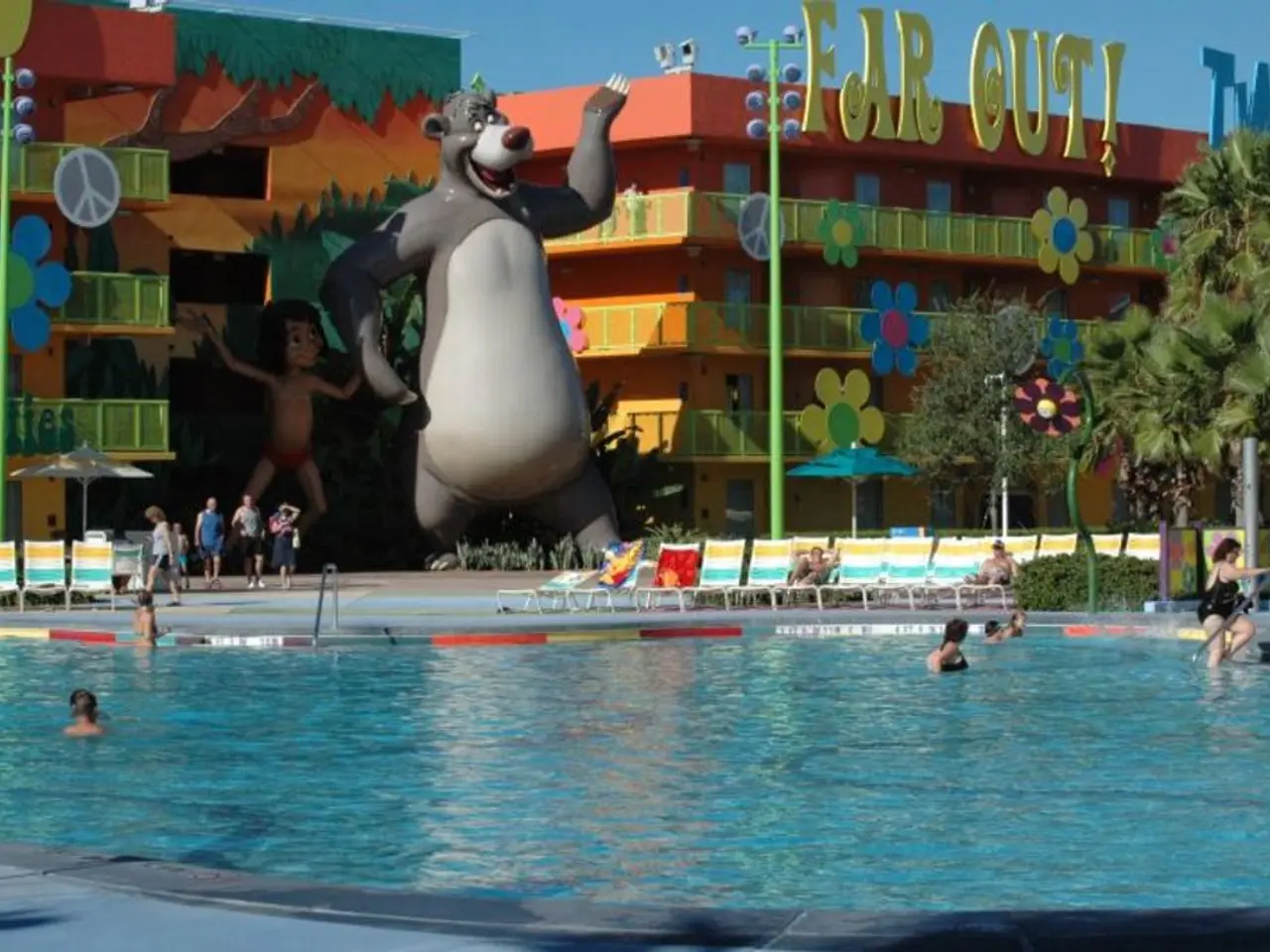Mass demonstration in Berlin against the prohibition of swimming in the Spree River
In the heart of Berlin, hundreds of people recently took to the waters of the Spree River in a protest against a ban that has been in place for a century. The 100-year-old ban on swimming in the Spree River, imposed in 1925 due to severe pollution, is now being questioned as water quality has significantly improved.
Organised by the non-profit association Flussbad Berlin, the protest, known as the "Mitschwimm-Demo," saw around 700 people swim in the river, drawing attention to the desire for regulated, safe swimming in the Spree. The event took place near the Museumsinsel, a UNESCO World Heritage site, on the Unter den Linden boulevard.
City authorities are now reviewing the situation. The Senate department responsible for environment and urban development is conducting further hygiene and water quality assessments to determine if regulated swimming can be allowed. Berlin’s 2026 urban development budget includes funding for constructing a pilot swimming area along the Spreekanal near Museum Island, inspired partly by Paris's example of reopening the Seine for public swimming.
While the ban is still officially in place, there is clear momentum toward allowing regulated, safe swimming in the Spree River in the near future. The police, however, urged caution and reminded people to only swim in designated areas in light of the Mitschwimm-Demo.
Local politicians have also shown support for the cause. Kerstin Wolter, chairwoman of the Left party in Berlin, criticized the lack of capacity in the city's public swimming pools and called for the lifting of the bathing ban in the Spree River. Mathias Schulz, an SPD member of the state parliament, expressed similar sentiments, while Silke Gebel, a Green party member of the Mitte district assembly, also advocated for the lifting of the bathing ban.
Stefanie Remlinger, the Green Party mayor of Berlin-Mitte, expressed her desire to see people swimming in the Spree River, stating that a Spree river bath would be a symbol of the ability to unite nature and the city. Mathias Schulz added that such a development would be a significant step forward for the city's recreational facilities.
However, the Senate Department for Transport and Environment remains skeptical about the resumption of bathing in the Spree River due to concerns about water quality in the Spree Canal and the Spree itself. The department is conducting further assessments to address these concerns and ensure the safety of swimmers if the ban is eventually lifted.
In conclusion, while the ban on swimming in the Spree River remains in place, the recent demonstration has brought renewed attention to the issue. With ongoing assessments and plans for a pilot bathing spot in 2026, it seems that the prospect of safe, regulated swimming in the Spree River is becoming increasingly likely.




